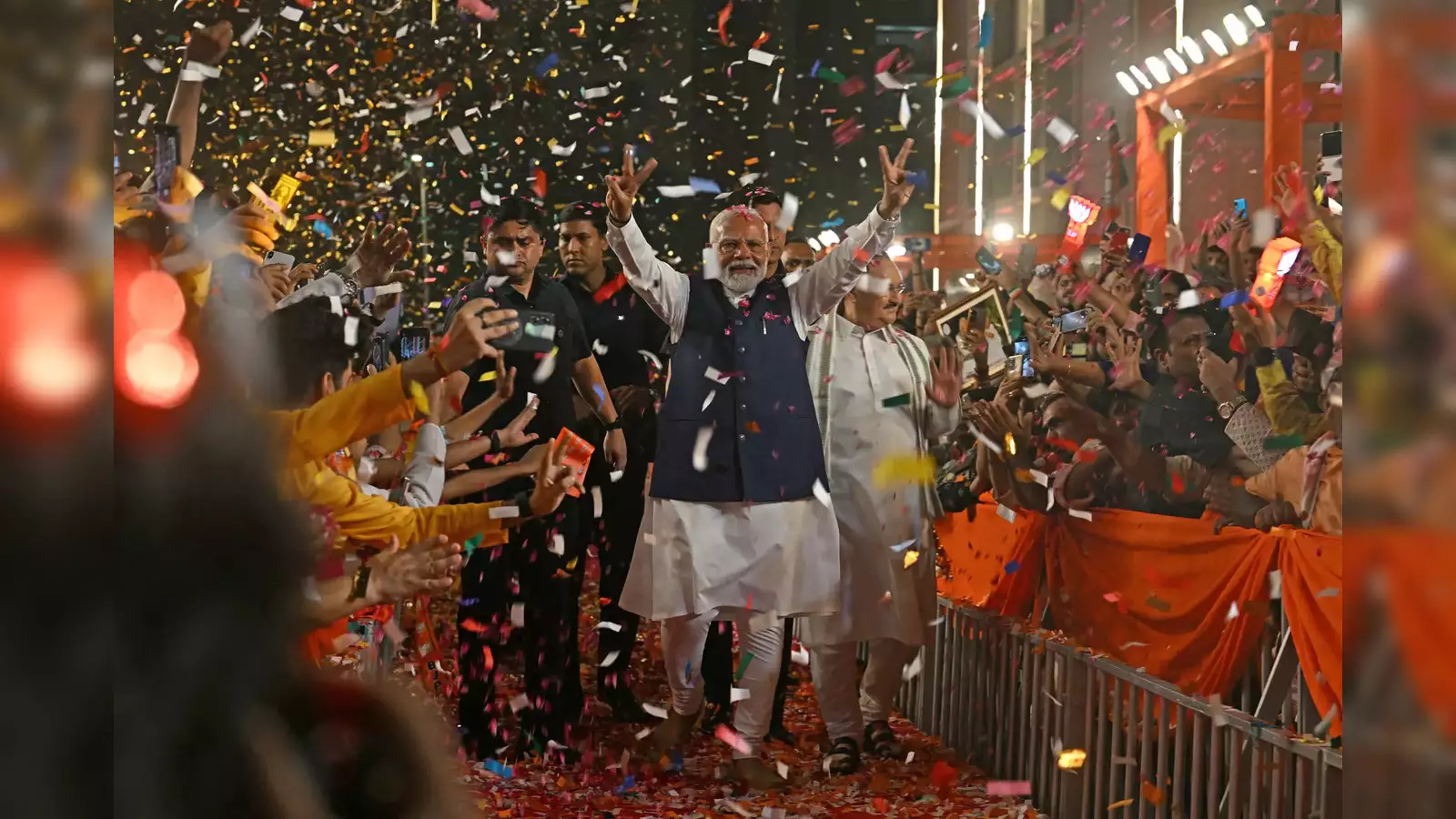As India concludes its extensive vote-counting process from the latest elections, it appears to be a bittersweet victory for the Bharatiya Janata Party (BJP) and its ideological affiliates within the Sangh Parivar. Narendra Modi is set to secure his third consecutive term as Prime Minister, yet the party’s ambitious target of winning 400 seats in the Lok Sabha remains unattained.
Current electoral trends suggest that while the BJP-led National Democratic Alliance (NDA) will achieve a majority, it will be a slim one. The opposition coalition, INDIA, spearheaded by the Congress party, has made unexpected strides, likely securing around 200 seats. This marks a significant turnaround for Congress, which had been marginalized in the political landscape over the past decade as the BJP advanced its Hindutva agenda, reshaping the legacy established by Nehru and Gandhi.
The BJP’s reliance on communal rhetoric and Muslim-baiting appears to have backfired, even in its traditional strongholds in the Hindi belt. Instead of responding to the BJP’s vision of a new Hindu rashtra, Indian voters have expressed greater concern over immediate issues such as employment and the rising cost of living. The grand inauguration of the Ram Mandir by Mr. Modi in January failed to sway the electorate, who were more focused on practical concerns than the confluence of politics, mythology, and communalism.
Mr. Modi’s aggressive stance towards India’s Muslim population, particularly pronounced during the election campaign, did not yield the anticipated electoral dividends for the BJP this time. This outcome signals a potential shift in the electorate’s priorities and a possible rejection of divisive communal politics.
The election results prompt a hopeful outlook for a reduction in inflammatory rhetoric against Muslims, advocating for a move away from the toxic communalism that has marked India’s political landscape in recent years.
Regarding Indo-Pakistan relations, the period since 2019 has seen bilateral ties deteriorate to their lowest point in decades under Mr. Modi’s leadership. India’s unilateral decision to revoke the special status of Kashmir stands as a significant barrier to improved relations. The provocative language used by Mr. Modi and his ministers during the campaign further strained relations with Pakistan, undermining prospects for peace.
As the BJP prepares to form the next government, there is a call for Mr. Modi to reassess his foreign policy approach. India should extend an olive branch to Pakistan, with Pakistan responding positively to such overtures. While rebuilding trust will be a gradual process, lasting peace in South Asia hinges on better India-Pakistan relations.
Addressing the Kashmir issue head-on is unavoidable; initiating dialogue, even if it starts with agreeing to disagree, is essential. Let this new government take the opportunity to foster a fresh start with Pakistan, paving the way for a more peaceful and cooperative South Asia.
